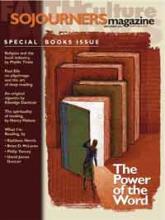Last November, I read a review of Paul Elie’s The Life You Save May Be Your Own: An American Pilgrimage in the December issue of The Atlantic. That magazine’s book editor, Benjamin Schwarz, wrote: "Interweaving the lives, work, and spiritual struggles of four twentieth-century American Catholic writers - Flannery O’Connor, Thomas Merton, Dorothy Day, and Walker Percy - Elie probes...the struggle to reconcile religious faith with the demands of art.... This book...is difficult to characterize, because it’s almost impossibly rich."
The Life You Save was a finalist for the National Book Critics Circle Award and was named the Beliefnet Book of the Year. But I’d already read biographies of all four of Elie’s Catholic writers. What could I possibly learn that would justify the time required to read another?
Then I got the 560-page book as a Christmas gift, and by New Year’s Day, I’d read it. Turns out there were some things I didn’t know about these four. Like the fact that they all knew each other, at least a little. But I also found that, as with any work of literature, the time spent with Elie’s book was its own reward. The Life You Save, which is now available in paperback, creates an experience of living up close with four rather solitary and contrary individuals, while simultaneously watching them - as if from above - as through their reading and writing, they slowly make their way toward the City of God, and each other. It is a work of biography and criticism with the drama and sweep of a historical novel. And, for anyone who is serious about the three R’s of reading, writing, and religion, it is also a sort of devotional book.
Read the Full Article

